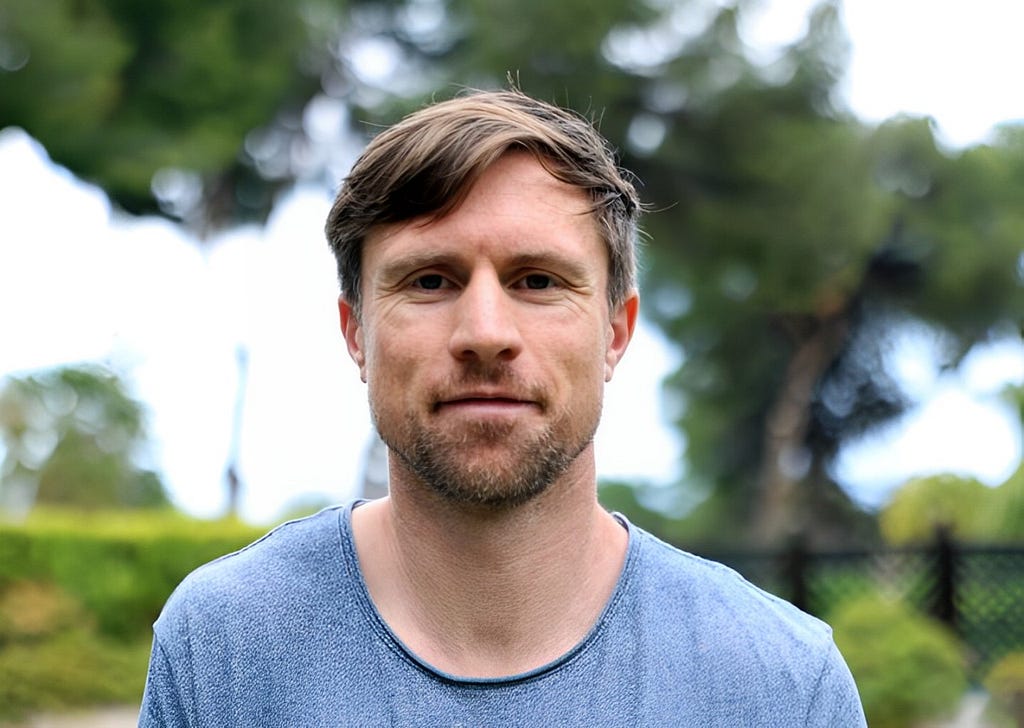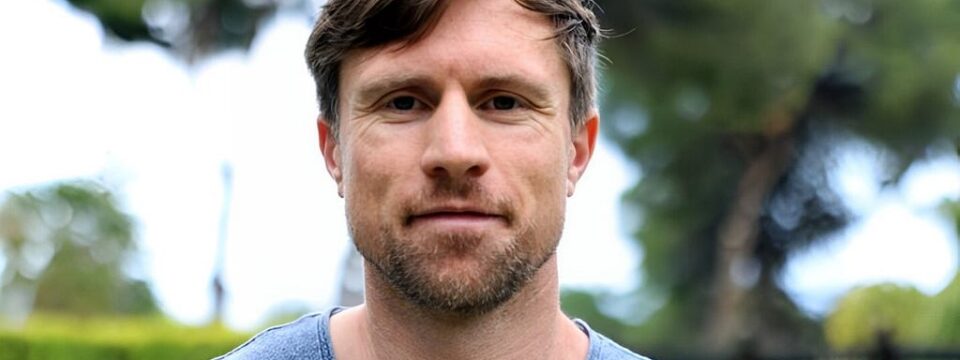
Everything takes longer than expected. For this reason it’s best not to be too specific with roadmaps. It’s good to maintain deadlines internally to set expectations but external communication on release dates only brings problems.
As a part of our series about “the 5 steps we can take to win back trust in journalism” we had the distinct pleasure of interviewing Ciaran Murray.
Olas was founded by Ciarán Murray, a seasoned veteran of the blockchain industry. Aside from advising on numerous blockchain projects down the years, and releasing a synthetics assets proof-of-concept last year, Ciarán previously worked in the media industry for British Sky Broadcasting. He is not only well placed to understand the issues facing the media industry but also how to apply blockchain and other distributed technologies to remedy them.
Thank you so much for joining us. Before we dive in, our readers would love to ‘get to know you’ a bit better. Can you share with us the “backstory” about how you got started in your career?
I was working in the European Commission as an economist in DG Trade when I was sent the Bitcoin Whitepaper in 2011. I was immediately blown away by the concept and within months had completely pivoted careers to what was then the nascent cryptocurrency industry. I became active as an investor and researcher in the space.
Do you have a favorite book that made a deep impact on your life? Can you share a story?
A Conflict of Visions by Thomas Sowell and The Gulag Archipelago by Aleksandr Solzhenitsyn are two books with a very similar message that have greatly impacted my worldview on how it’s best to organise society. We need to disperse power as much as possible. Blockchains are going to be a hugely important tool in that regard.
Can you share the most interesting story that occurred to you in the course of your career?
I think the most interesting parts of my crypto journey are the early days. I joined Bitcoin Talk when there were fewer than 1000 members, if I recall. I invested in the world’s first ICO — Mastercoin when there were fewer than 500 buyers. I took part in the Ethereum ICO. It was a very different time to now. Niche communities on the internet vs a huge political force that is now affecting regulations globally and becoming increasingly intertwined with the global financial system. It’s crazy looking back on how small it was.
Can you share the most humorous mistake that you made when you first started? Can you share the lesson or take away, you learned from it?
I panicked when there was a DDOS attack and sell off on Bitstamp in March 2013. I eventually logged in and sold only to see the price rebound the next day. That day I learned never to try and play what were then highly manipulated markets and just HODL.
What are some of the most interesting or exciting projects you are working on now?
I’m currently working on an exciting project called Olas, which is a publicly accessible publishing protocol and database of vetted informational sources, such as news, opinions and scientific articles. I started this project to create a solution to the contemporary crises in news and scientific publishing. We’re going to employ a completely new subsidy-based economic model to resurrect the fortunes of news media, particularly local media and to break the vice-like grip the academic journals have over science. We also aim to employ superior quality control systems to greatly improve the accuracy of output in these sectors. I’m very excited to work on it as something like Olas is not only sorely needed right now but will become even more so with the advent of AI.
What advice would you give to your colleagues in the industry, to thrive and not “burnout”?
In the blockchain industry, my advice to thrive is to not grow too fast. Stay lean. This technology is still very early on the adoption curve. An internet scale decentralised application is still a number of years away. One’s roadmap should bear that in mind for sustainability.
In the media industry I understand it’s an increasingly hard battle to thrive. At Olas we hope to drastically change that situation in the not too distant future.
Ok, thank you for that. Let’s now shift to the main parts of our interview. According to this Gallup poll, only 36% of Americans trust the mass media. This is disheartening. As an insider, are there 5 things that editors and newsrooms can do to increase the levels of trust? Can you give some examples?
The shift towards subscription models in the media has triggered significant challenges contributing to a growing distrust, particularly for smaller publications unable to replicate the success of major players. This transition requires substantial upfront investment and extensive marketing efforts, often leaving smaller outlets struggling to attract subscribers, thus concentrating media power and exacerbating news deserts in many communities.
To rebuild trust in journalism, editors and newsrooms must prioritise democratised access to information. This means removing barriers that hinder access to news and information, ensuring that they are available to all members of society, regardless of their financial means. Embracing open access principles, which encompass transparency and accountability, diverse perspectives, public involvement and investment in quality journalism, is vital for rebuilding confidence in the media.
- Transparency and accountability — Transparency and accountability are foundational for rebuilding trust in the media as it fosters an overall increased openness to media reporting. Newsrooms must strive to be transparent about their sources, methodologies, and potential biases in their reporting. Editors play a crucial role in this process by promptly publishing clear corrections and explanations when mistakes are made, demonstrating a commitment to accuracy and accountability.
- Diverse Perspectives — Diversity in newsrooms is essential for ensuring that coverage reflects a wide range of viewpoints and experiences. This diversity helps mitigate biases and builds trust among audiences, particularly those who feel underrepresented in mainstream media. By incorporating diverse perspectives into their reporting, newsrooms can create a more inclusive and trustworthy information ecosystem.
- Public Involvement — Public involvement, including fact-checking and reviewing, is crucial for empowering individuals to contribute to information accuracy and integrity. Drawing inspiration from the success of micromedia and open protocols like Tim Berners-Lee’s hypertext transfer protocol (HTTP), there is a clear opportunity to empower individuals through collaborative content moderation. Platforms that enable community-driven fact-checking and editorial review can help combat misinformation at its source, rather than attempting to address it after it has spread. By giving everyone review powers and incentivizing participation, newsrooms can harness the collective wisdom of the crowd to enhance the quality and reliability of their reporting.
- Investment into quality journalism — Finally, investment into quality journalism is paramount for rebuilding trust in the media. Journalists must be properly incentivized economically and given the support they need to produce high-quality content. This includes adequate resources for research, fact-checking, and investigative reporting, as well as measures to protect journalists from external pressures that may compromise their integrity. By investing in quality journalism, newsrooms can uphold the highest standards of accuracy, fairness, and transparency, further strengthening trust with their audiences.
What are a few things that ordinary news consumers can do to identify disinformation, and help to prevent its dissemination?
It’s crucial for news consumers to engage critically with the information they encounter. News consumption should always be a two-way street. While I understand that time constraints may limit deep investigation into every news piece, adopting an objective mindset can significantly help. This can mean cross-referencing information from multiple sources and applying personal analysis to assess credibility. Additionally, scrutinising headlines, images, and URLs for signs of manipulation or bias is also important, as these are common tactics used to spread false information. Moreover, Being mindful of personal biases is equally important; approaching news stories with a critical eye can prevent the spread of false information.
In the event of encountering disinformation, it’s imperative for readers to take action by reporting it to the platform or website hosting the content, as well as spreading awareness within their community and beyond, such as through social media. The best antidote to bad speech is good speech. Communities need to be proactive in policing themselves and treating with scepticism anything they read online.
Can you share your “5 Things I Wish Someone Told Me When I First Started” and why? Please share a story or an example for each.
- To ignore short term market movements and chatter and focus on long term trends. Markets are schizophrenic over the short term and prediction machines over the long term. It took me many years and a lot of lost profits to discover this.
- Don’t become psychologically attached to anything in tech. Be prepared to pivot at any time. It’s easy to become attached to a certain platform, especially if you’re invested in it. This can lead you to make decisions that aren’t for the best of your project.
- Everything takes longer than expected. For this reason it’s best not to be too specific with roadmaps. It’s good to maintain deadlines internally to set expectations but external communication on release dates only brings problems.
- Be Patient. This applies to building as well as investments. There’s a saying “time in the market is much more profitable than timing the market”. I’ve learned that a similar rule exists when building an application that’s dependent on a network for success. It’s easy to get carried away in a rapidly growing space where prices regularly run ahead of fundamentals and to get the urge to ship something as quickly as possible. However, slowly building a loyal network is painstaking work but essential to the success of the project. The long-term success of the project depends on this much more than shipping code as quickly as possible.
You are a person of enormous influence. If you could start a movement that would bring the most amount of good to the most amount of people, what would that be? You never know what your idea can trigger. 🙂
Decentralised Knowledge (DeKnow) — I’ve already started this movement! I can think of fewer things of more benefit to the world than an open information system no entity controls. That was the original promise of the internet but it has become dominated by a few players. The internet also never had native quality control functions built into it. The DeKnow movement aims to change that. Instead of relying on hierarchies within self-interested businesses to interrogate our information, we can harness the wisdom of the crowd instead. If we design the incentives right we can deliver the world a media platform that nobody controls yet the publishers of misinformation and inaccurate output are held to account.
How can our readers follow you on social media?
Yes @c1aranmuray on Twitter
Thank you so much for your time you spent on this. We greatly appreciate it, and wish you continued success!
Ciaran Murray of Olas On 5 Steps We Can Take To Win Back Trust In Journalism was originally published in Authority Magazine on Medium, where people are continuing the conversation by highlighting and responding to this story.
